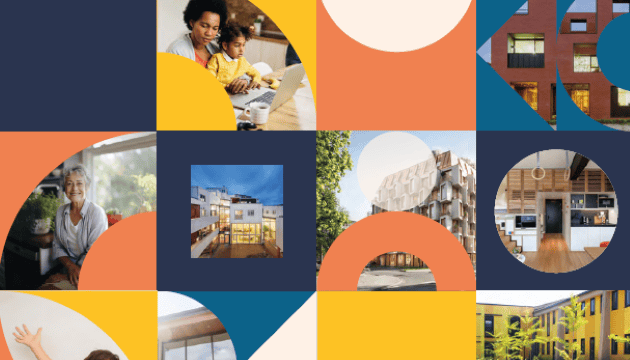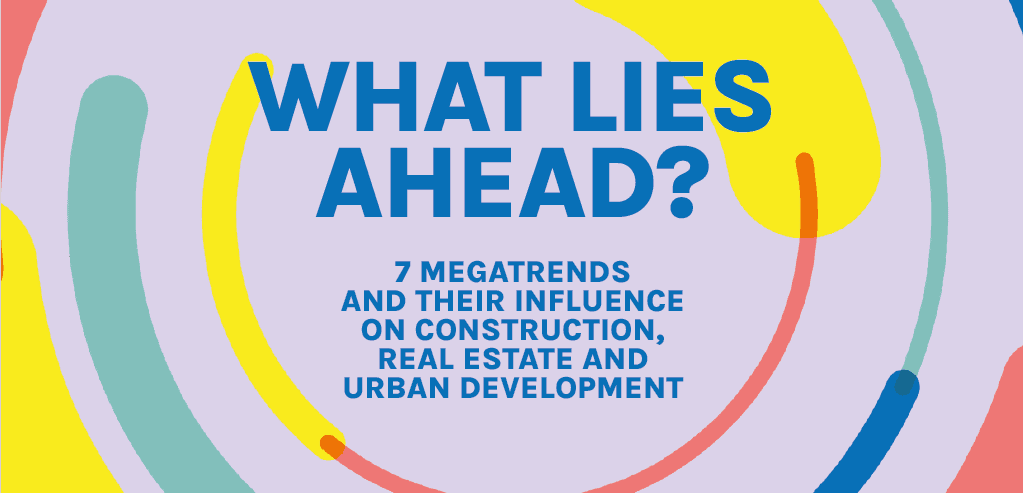
The French Towns Adopting Sustainable Construction Charters
2 minutes of reading
Many towns and cities are looking for a way to remodel their urban planning to give them resilience in the face of climate issues. One such solution is to rally the stakeholders in an area – residents, companies and local authorities – to move towards housing solutions that are innovative, sustainable and accessible to all: that is the cited goal of the ‘sustainable construction charters’ emerging around France.

The Sustainable Construction Charter of the City of Marseille, approved by the city council in October 2021, is built around key issues such as the greening of public spaces, the protection of the city’s architectural and landscape assets and social inclusion. It covers the construction of social housing in all areas of the city for a type of urban planning that works for everyone, as well as the preservation of existing buildings, which “should be transformed rather than demolished” in order to fit in with the country’s goal of ‘zero net artificialisation’ while also retaining the city’s identity.
This is not just a charter, but also a method: the method of dialogue. “With Marseille sorely lacking housing, and especially social housing, this tool will help us to get construction going again in the city, with a simple vision: building more, for everyone, but building better,” explained Mathilde Chaboche, Marseille’s Deputy Mayor for Urban Planning and Harmonious City Development. The idea? To formalise principles and include citizens in the process as well as companies and the city council, so that everyone is on the same page regarding future projects.
More and more towns and cities have been adopting sustainable urban planning or construction charters over the past few years, including Argenteuil, Montreuil, Colombes, Marseille, Aulnay, Saint-Malo, Lyon, Bordeaux and Nîmes. And each time, the goals are more or less the same: to guide the parties involved in urban planning such that projects are rooted in a shared vision in line with the town or city’s values, and to support, facilitate and further dialogue with residents.



Preserving a Place’s Identity and Promoting Sustainable Urban Planning
In many cases, it is a desire to promote sustainable urban planning, from both environmental and architectural points of view, that is the main factor in the adoption of these tools. “We want to move away from the mindset that buildings are disposable, which will enable us to respect our heritage and our identity and to limit the environmental impact,” Gaylord Le Chéquer, Deputy Mayor of Montreuil, explained to Les Echos regarding the town’s sustainable construction charter. A document that lists recommendations for those initiating projects to help them with the design phase, before the application for planning permission. Entitled Construction Charter for a Resilient Town, it sets out different goals such as encouraging the construction of housing with the potential to evolve in the future, and housing with green spaces; preserving biodiversity and encouraging renovation over demolition wherever possible. In Lyon, the city’s construction charter has also been put into effect to fit in with the challenges of the ecological transition. It therefore puts the emphasis on the ecological restoration of the city. Each project must, for example, include a greening component and fit in with what is already there and the environment, which entails preserving trees and land that has not been built on, as well as maintaining and improving soil permeability. In Meylan, the charter adopted by the local council in June also makes it possible to fit future development projects around the need to create cool spaces in the town or to combine them with renewable energy. But aside from their environmental implications, these charters are also seen by local authorities as tools to help co-develop their town or city with input from all the parties involved, including citizens. Most of them, incidentally, are the fruit of consultations with developers or residents to reach agreements on urban development.
Cultivating Dialogue with the Different Parties Involved
“Creating a model of sustainable urban development that goes beyond current regulations and meets the challenges of the towns and cities of tomorrow requires the main parties involved and affected by urban development and housing to be brought together in a collaborative process initiated by the local authority,” said Jacques Bigot, President of the Urban Community of Strasbourg, when explaining why this tool has been adopted. In this same spirit of collaboration, in Houilles in Yvelines, the sustainable construction charter was created primarily to stimulate dialogue with residents. “The main [goal] is to get residents involved. We voted in favour of a policy requiring a consultation prior to all development projects that are subject to planning permission,” explained Mayor Julien Chambon, who does not hide the fact that it also facilitates dialogue with those behind projects around preserving the town’s identity, moving towards low-carbon projects using bio-based materials such as wood, straw and earth, and improving thermal comfort in housing. In Lyon, several sessions were also held with representatives from the construction sector prior to the adoption of the charter, which also sets out a system whereby ‘preliminary workshops’ are held to check that projects fit the criteria laid out before applications for planning permission are examined. Montreuil’s charter requires consultations with residents of the areas surrounding potential development sites in order to include everyone in the process. Sustainable construction charters, therefore, are presented as an extra tool in local authorities’ toolboxes to help them transform towns and cities in line with the sustainable development goals while also putting an emphasis on dialogue and consultation. Obviously, they do sometimes have their limits. In many cases, they do not, for example, give authorities the power to oppose projects that do not comply with the charter. They do however provide a useful way to speed up the transitions of towns and cities to a more sustainable world.More reading
Read also




What lies ahead? 7 megatrends and their influence on construction, real estate and urban development
Article
20 minutes of reading

